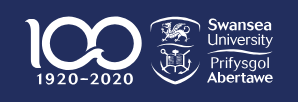About Applied Medical Sciences, Bsc (hons) in Swansea University
Gain a thorough grounding in the science underpinning medicine with our new BSc in Applied Medical Sciences.
You will study a comprehensive range of topics, including human anatomy and physiology, cell biology, genetics, pharmacology, and neuroscience, together with their clinical and applied relevance.
You will develop an in-depth understanding of how the human body works, what happens when it goes wrong, how we currently treat disorders, and the potential for novel therapeutics.
This course provides a comprehensive grounding relevant to careers in lab research, medicine and commercial enterprise in the life sciences. We have 3 Employability strands to choose from in your second year (subject to eligibility): Medical Science in Practice, Enterprise and Innovation, and Medical Science in Research.
WHY APPLIED MEDICAL SCIENCES AT SWANSEA?
A mix of compulsory and optional modules give you the scope to tailor your studies to your particular interests, career goals, or plans for post-graduate study.
You will benefit from access to the state-of-the-art research and teaching facilities at the Medical School, including the anatomy suite and research laboratories.
This degree is part of our ‘Medical Science in Practice’ Pathway to Medicine programme. Provided you meet the minimum entry requirements for Graduate Entry Medicine, and have successfully completed the Pathway, you will be guaranteed an interview for our flagship Graduate Entry Medicine MBBCh course.
YOUR APPLIED MEDICAL SCIENCES EXPERIENCE
Our approach to learning encourages excellent research and communication skills, incorporating lectures, seminars, practical laboratory sessions, independent learning, and working in small groups.
You will be joining a university that is in the UK top 5 for overall student satisfaction (NSS 2018) and the UK top 10 for graduate prospects (DLHE 2018).
APPLIED MEDICAL SCIENCES EMPLOYMENT OPPORTUNITIES
With a strong entrepreneurial and innovation slant, our BSc in Applied Medical Sciences is ideal if you are interested in a career in emerging science, product development, pharmaceuticals, or biotechnology.
It also provides an excellent base for graduate entry into more clinically focused studies, including medicine or post-graduate research.
Non-native English speakers must achieve 6.0 overall with no component less than 5.5 in IELTS or equivalent tests.
Candidates are expected to have achieved 70% Year XII including Standard XII in English - 70% or above (or equivalent).
Swansea University Highlights
| Type of learning |
On-campus |
| Type of degrees |
Bachelors, Masters |
| No. of campuses |
2 |
| Application Season |
Various intakes round the year |
| On-campus housing |
Available |
| Financial Aid |
Available as Scholarships and Awards |
| Work Study |
Available for international students |
Swansea University Average Tuition Fees And Other Expenses
An estimated budget for aspirants consisting of expenses like accommodation, travel and stay required to study in the UK is as compiled below. Note that an annual budget for undergraduates and graduates of the university is approximately 7500 GBP and 9500 GBP, respectively.
Swansea University Tuition Fee
The tuition fees vary from course to course for both graduate and undergraduate degrees. Fee for some of the course is:
- Social Work & Graduate Entry in Medicine (GEM): 9,000 GBP.
- Nursing, Midwifery, Paramedic Science and Healthcare courses: 9,000 GBP.
- Graduate Diploma in Law (GDL): 7950 GBP.
Swansea University Cost of living
Other expenses apart from the tuition fee are as mentioned below.
Private Residence Costs
| Expenditure |
Cost per week |
Cost per academic year (40 weeks) |
| Rent |
80.00 – 110.00 |
3200.00 – 4400.00 |
| Meals |
- |
2,000 to 3,000 |
| Contents Insurance |
2.75 |
110.00 |
| Broadband |
4.60 |
184.00 |
| Travel Costs |
9.00 |
360.00 |
Swansea University Course Costs
| Course Costs |
Costs per Week |
Cost per academic year (40 weeks) |
| Books |
8.36 |
334.40 |
| Printing and Binding |
1.10 |
44.00 |
| Course Equipment |
1.75 |
70.00 |
| Field Trips |
1.35 – 30.00 |
54.00 – 1200.00 |
